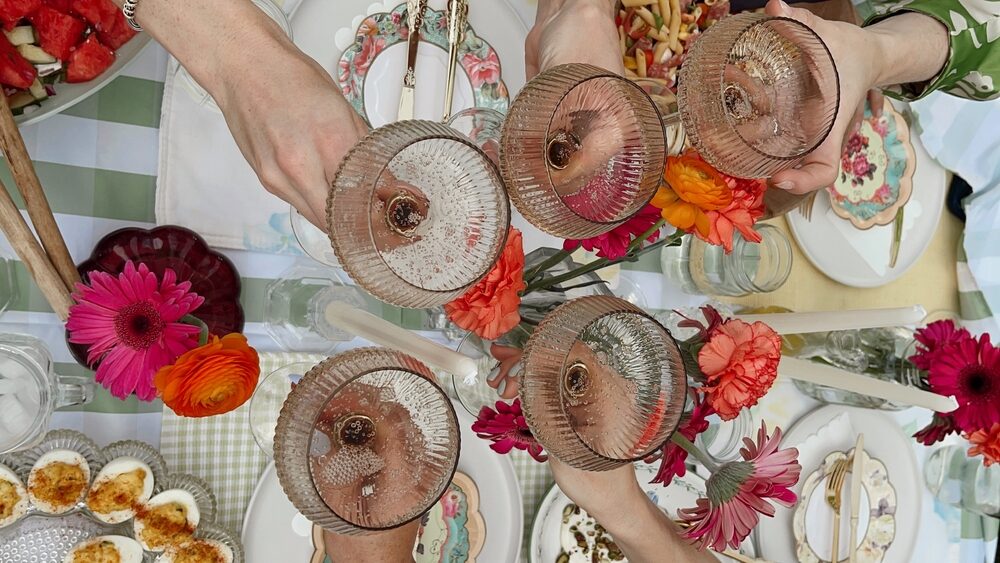Navigating friendships can sometimes feel like flipping through a magazine of seasonal trends. One minute you’re the must-have accessory, the next you’re stashed away like last season’s attire. If you often find yourself feeling like the “seasonal” friend—reappearing only when it’s convenient for others—this list might hit home. We’ll delve into the tell-tale signs that you might be that friend who’s sometimes overlooked, forgotten, and sought out only when the occasion fits.
1. Your Invites Come With An Expiry Date

If you notice that you only get invites during certain times of the year, you’re not imagining things. You might be the friend who gets called up for summer beach days or holiday drinks but is mysteriously absent from the year-round group chat. According to Dr. Marisa G. Franco, a psychologist specializing in friendship, seasonal friendships can stem from the emotional and social needs people have at different times. When those needs change, so does the frequency of your inclusion. If this feels familiar, you might be the go-to for specific vibes or activities, rather than a constant presence.
While there’s nothing inherently wrong with being the friend who fits well into particular scenarios, it can feel limiting. It’s like being a specialized tool in a toolbox that’s only pulled out for specific tasks. Your presence is valued, but in a narrow context, which can be both flattering and frustrating. Recognizing this pattern can help you decide if you’re okay with it or if you want to diversify your social engagements. After all, who wants to be tucked away until next summer or holiday season?
2. Your Conversations Are Always Surface-Level

You might find that interactions with certain friends never go beyond light-hearted banter or casual topics. When deeper conversations are reserved for their “core” group, it can be a sign that you’re not in that inner circle. It’s not necessarily a reflection of your conversational skills; sometimes, people compartmentalize relationships without realizing it. If topics never venture beyond the superficial, it might mean your role in their life is more about fun than foundational support.
This isn’t to say that all friendships need to be deep or life-altering. Light-hearted relationships have their place and can be incredibly fulfilling in their own right. Yet, if you find yourself craving a bit more depth and substance, it might be worth initiating those conversations. People often mirror the energy you bring, and sometimes all it takes is a nudge to dive deeper. If the response isn’t encouraging, it might be a sign to reassess the friendship’s dynamics.
3. Your Friendship Happens On Social Media Only

If your presence in someone’s life mostly exists through tagged photos and occasional comments, you might be the seasonal friend. Social media can give the illusion of connection without the reality of it. Research by Sherry Turkle, an MIT professor, suggests that while social media is great for keeping in touch, it doesn’t replace actual interaction. If you notice that your friendships primarily take place in the digital realm, it might mean you’re not part of their regular, offline life.
Though social media plays a significant role in modern friendships, it’s not the whole story. It’s easy to fall into the trap of thinking likes, shares, and comments equate to meaningful engagement. While these interactions can enhance friendships, they can also mask the lack of genuine interaction. If digital interactions are the norm rather than the exception, it might be time to reach out for more face-to-face encounters. After all, nothing beats a real conversation to strengthen a friendship.
4. Your Advice Is Ignored Until It’s Convenient

Ever noticed how your suggestions or advice are often brushed aside until the moment they actually need it? You might be the friend whose advice is picked up only when it’s immediately useful, much like an article pulled from a magazine when it’s relevant. This can be both a compliment and a frustration; people value your insight but don’t always prioritize it unless it aligns with their current situation. When this pattern repeats, it can leave you feeling sidelined.
This behavior isn’t always intentional. Sometimes, people compartmentalize advice based on timing and relevance rather than its intrinsic value. If this resonates with you, consider how your advice is delivered and the circumstances in which it’s offered. Maybe a different approach could make your insights more consistently appreciated. If you’re consistently overlooked, it might be worth having a candid conversation about your role in their decision-making process.
5. You’re The Event Planner, Not The Guest Of Honor

Some friends might only reach out when they need help organizing a get-together or event, rather than inviting you as a cherished guest. Your knack for planning becomes both a boon and a burden—valued for your organizational skills but not always for your company. Dr. Robin Dunbar, an anthropologist and evolutionary psychologist, found that organizing events can place you in a functional role rather than a personal one. This dynamic can leave you feeling more like the help than part of the celebration.
Planning and organizing are skills to be celebrated, but when they become the sole reason for your inclusion, it can feel isolating. If you find yourself always in the kitchen rather than at the table, consider setting boundaries. Let people know you’d love to be involved but also want to enjoy the event as a participant. Establishing this balance can ensure your talents are appreciated without overshadowing your role as a friend.
6. You’re The Plus-One, Not The Main Event

If you often find yourself attending functions as someone’s plus-one, it might suggest you’re a supplemental presence rather than a primary invite. This dynamic can subtly indicate that your inclusion is conditional, depending on someone else’s primary relationship with the group. While being a plus-one means you’re still part of the gathering, it can sometimes feel like you’re only there because someone else is. It’s a gentle reminder that your connection might not be as strong as it is with others.
This doesn’t mean your presence isn’t valued; it just indicates your relationship may not be as independently strong. Being a plus-one can be an excellent way to widen your social circle, but it can also point to a need for forging more direct connections. If you want to strengthen these bonds, consider initiating meet-ups or conversations outside of these plus-one scenarios. Developing your own foothold in the group can transform your role from incidental to integral.
7. You’re A Celebration Guest, Not A Regular

Being invited to birthdays, weddings, or celebrations but not the casual hangouts could mean you’re seen as someone who adds flair but lacks day-to-day involvement. It’s like being the friend who’s great for a party but not necessarily part of the everyday grind. A study published in the Journal of Social and Personal Relationships highlights that social networks often designate roles to friends, which can dictate involvement levels. Events are excellent for reconnecting, but without regular interaction, it’s challenging to foster deeper connections.
If this pattern resonates with you, it might be worth examining what you want out of these friendships. Celebrations are wonderful, but they’re not the entire spectrum of a relationship. Look for opportunities to engage in more routine activities, like casual coffee dates or spontaneous outings. These moments can balance out your role and enrich your relationship beyond the occasional celebration.
8. You Get The Call During Crisis, Not Calm

If the phone only rings when drama or crisis hits, you might be the friend people turn to for support but not for everyday moments. This can be emotionally taxing, positioning you as a problem-solver rather than a partner in fun. Being the trusted advisor is a compliment to your empathy and wisdom, yet it can also pigeonhole you into a specific role. When people only reach out in need, it can overshadow the lighter aspects of friendship.
It’s important to evaluate if this role is something you’re comfortable with or if it leaves you feeling undervalued. Sometimes, stepping back from immediate problem-solving allows for a more balanced relationship to emerge. It can also be beneficial to initiate contact during non-crisis periods, showing that you’re available for more than just emergencies. This shift might encourage more well-rounded interactions where you’re appreciated for more than just your problem-solving skills.
9. You’re A Great Listener, But Not Heard

Listening is a valuable skill, but if you find yourself constantly in this role without reciprocation, it might indicate an imbalance. You might be the go-to for venting or advice, but when it’s your turn to share, the interest wanes. This dynamic can be lopsided, affecting how valued you feel in the friendship. While people appreciate your listening ear, it’s important to ensure your voice is heard as well.
To navigate this, consider gently steering conversations to more balanced exchanges. Encourage a dialogue rather than a monologue, allowing for an equal sharing of experiences. It might also be worth expressing this need directly, as sometimes people are unaware of the imbalance. By fostering a more equitable exchange, you can enhance the depth and mutual appreciation within the friendship.
10. Your Plans Are Always Tentative

If your invites are consistently penciled in rather than set in stone, it might suggest hesitancy in prioritizing you. Plans with you are often the first to be changed or canceled, reflecting your status in their hierarchy of commitments. While life can be unpredictable, a pattern of tentative plans can leave you feeling like an afterthought. It’s a subtle indication of where you stand in the pecking order of their social priorities.
Addressing this doesn’t necessarily mean confronting it head-on. Sometimes, it’s about observing trends and understanding your place in the social landscape. If it bothers you, communicating your feelings can lead to more concrete plans and less uncertainty. Building trust and reliability in these small ways can gradually shift your role from tentative to tenured, solidifying your place in their lives.
11. You’re The Emergency Contact, Not The Everyday Call

Your role might skew towards emergencies if your first thought is “What happened?” when someone calls. Being the emergency contact can be a testament to trust, but it also signals your friendships might lack day-to-day communication. While this role is crucial, it can limit the scope of your interactions. If the only time you’re contacted is during high-stress situations, it’s a narrow bandwidth for connection.
Consider what balance would look like for you. If you’re comfortable in this role, there’s nothing inherently negative about it. However, if it feels restricting, initiate contact during the mundane, everyday moments. Building a more rounded communication pattern can leverage your role as an emergency contact into a more comprehensive friendship, valued in both highs and lows.
12. You’re The Memory Keeper, Not The Memory Maker

Being the friend who always takes photos or documents events can create a unique position for you, but it might also hint at an imbalance. If you find yourself capturing memories rather than participating in them, it could mean you’re more observer than participant. While documenting events is important, it’s equally crucial to be part of the experience. You might be remembered for the photos rather than the presence.
Finding balance between capturing moments and being in them can enhance your relationships. Consider stepping back from the lens and immersing yourself in the moment. Encourage others to share in the documenting responsibilities, allowing you to forge stronger memories and connections. This shift can transform your role from keeper of memories to an integral part of the stories shared.
13. You Get The Invite When Others Can’t Come

If you frequently receive last-minute invites or only when others decline, you might be the backup plan. Being the fill-in friend isn’t a reflection of your worth but rather the dynamics of their planning. This pattern can be both flattering and frustrating, as your presence is wanted but not necessarily prioritized. Understanding this dynamic can help you decide how to approach these friendships.
Acknowledging this role doesn’t have to be negative. Sometimes, it opens opportunities to step into new social circles and make an impression. However, if you desire more consistent inclusion, consider expressing your interest in being more than just a last-minute option. Building stronger, direct connections can transform your role from backup to baseline, ensuring your presence is sought after rather than simply convenient.
14. You’re The Good Weather Friend

You might be the one who’s called upon when times are good, but notably absent when things get tough. Being the fair-weather friend suggests you’re associated with fun and positivity, yet not the go-to for support in trying times. While this role can be enjoyable, it also limits the depth of your relationships. If you’re only engaged during the highs, it can suggest a lack of trust or connection during the lows.
Building deeper connections involves showing up in all weather conditions, not just the sunny ones. If you’re seeking more substantial relationships, offering support during challenging times can build trust and reciprocity. It can also be helpful to communicate your willingness to be there through thick and thin. Transforming your role from a good-weather friend to an all-weather companion can enrich your friendships, making them more fulfilling and robust.


